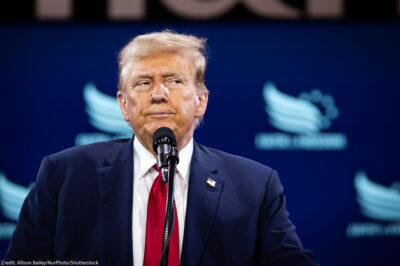In Minimalist Approach to Campaign Finance Reform, High Court Rejects Entreaties to Overhaul Law
FOR IMMEDIATE RELEASE
WASHINGTON -- Ruling 6-3 today in a closely watched campaign finance reform case, the Supreme Court reaffirmed the First Amendment's significant limits on regulating campaign contributions while rejecting entreaties to reconsider a landmark ruling on the issue.
The American Civil Liberties Union, which filed a friend-of-the-court brief in the case, said the court's minimalist ruling leaves the status quo intact on the important First Amendment protections enshrined in Buckley v. Valeo, the 1976 landmark ruling.
"The court today did no harm," said Joel M. Gora, author of the ACLU's legal brief and a professor at Brooklyn Law School. "No landmark First Amendment ruling was handed down and none was dismantled."
At issue in Nixon v. Shrink Missouri Government PAC, (No. 98-963) was the narrow question of whether the government is obligated to prove decisively that there is an actual problem of corruption or the appearance of corruption when seeking to maintain $1,075 limits on campaign contributions in Missouri. Today's majority, authored by Justice David Souter, found that Missouri had provided sufficient justification for the limits.
However, the Court largely left it to the states and Congress to decide whether the artificially low campaign contribution limits should be adjusted, while declining to involve itself in the details of whether and how such adjustments should be made.
At the same time, the Court acknowledged the serious First Amendment problems in setting contribution limits so low that they would "drive the sound of a candidate's voice below the level of notice," but concluded that that issue was not presented in today's case.
"We hope today's ruling will encourage Congress to come up with some common-sense solutions to what everyone agrees is a flawed campaign finance system," said Laura W. Murphy, Director of the ACLU's Washington National Office.
The ACLU, Murphy noted, continues to stress that public financing is far more likely to achieve meaningful campaign finance reform without the constitutional problems that have plagued the limits-driven approach embodied in McCain-Feingold and other prominent campaign finance proposals. "In a society where money is so unequally distributed," Murphy said, "full public financing provides a constitutional alternative to the American people."
In a series of public policy advertisements last year, the ACLU and Public Campaign joined forces to encourage state legislatures and Congress to consider full public financing systems.
The ACLU's brief in Shrink also reflected that thinking, according to Gora, saying that the organization believes the answer to the ongoing campaign finance dilemma does not lie in more limits, more loopholes and more public cynicism.
"The Supreme Court today missed an opportunity to reject its 20-year reliance on contribution limits and instead order the state legislatures and Congress to develop meaningful reform that, unlike many current proposals, would not run afoul of the First Amendment," Gora said.
The ACLU's amicus brief is online at:
http://archive.aclu.org/court/shrink1.html.
Joel Gora's statement on the case is online at:
http://archive.aclu.org/court/gora_99.html.
Information on the ACLU's public financing position is online at:
http://archive.aclu.org/features/public_campaign.html.
Stay Informed
Sign up to be the first to hear about how to take action.



